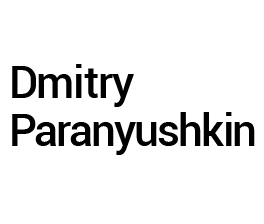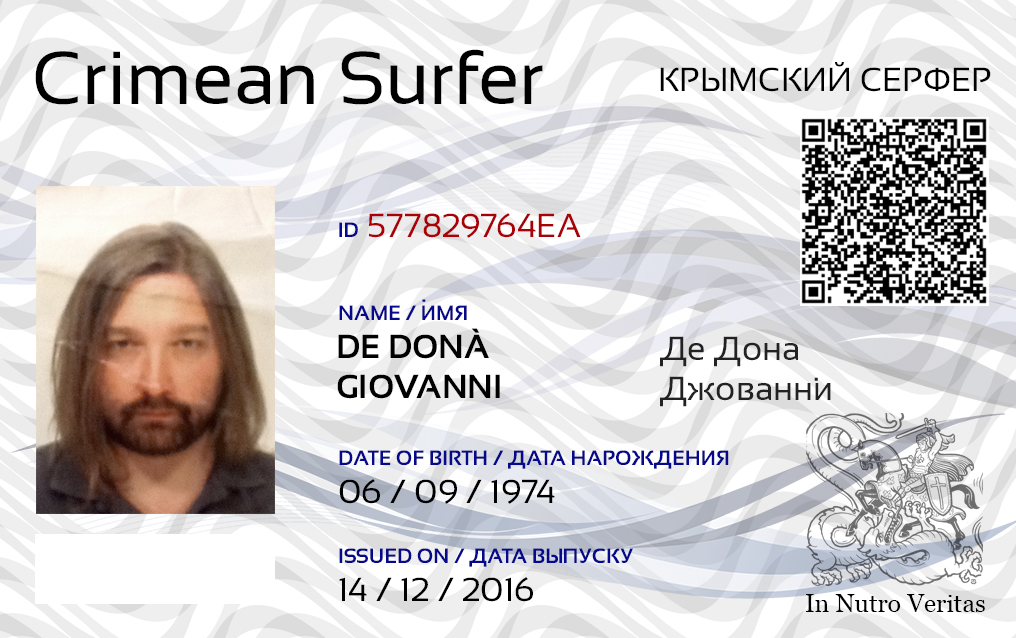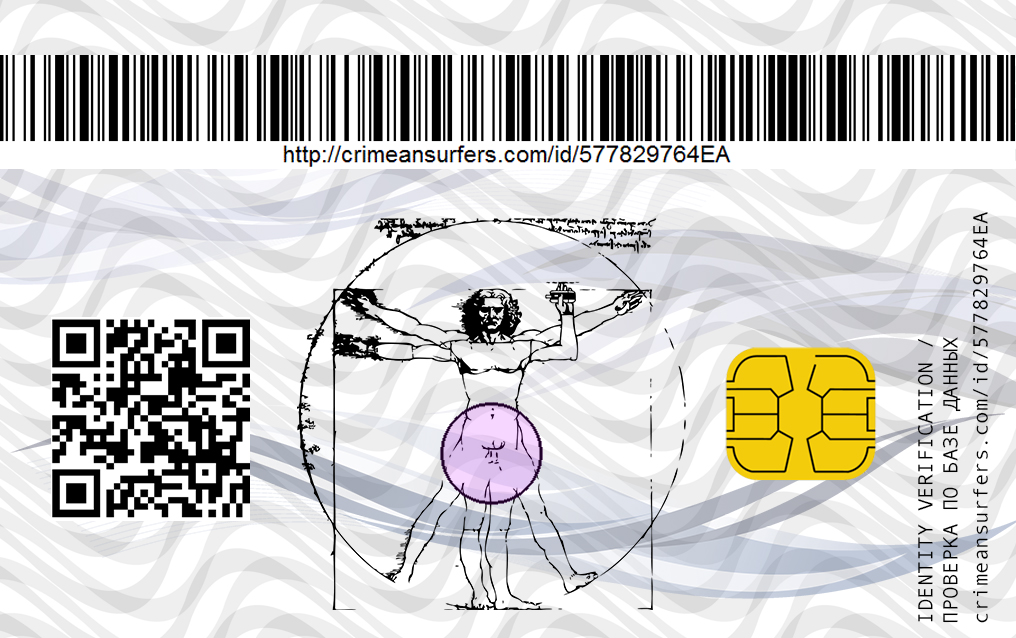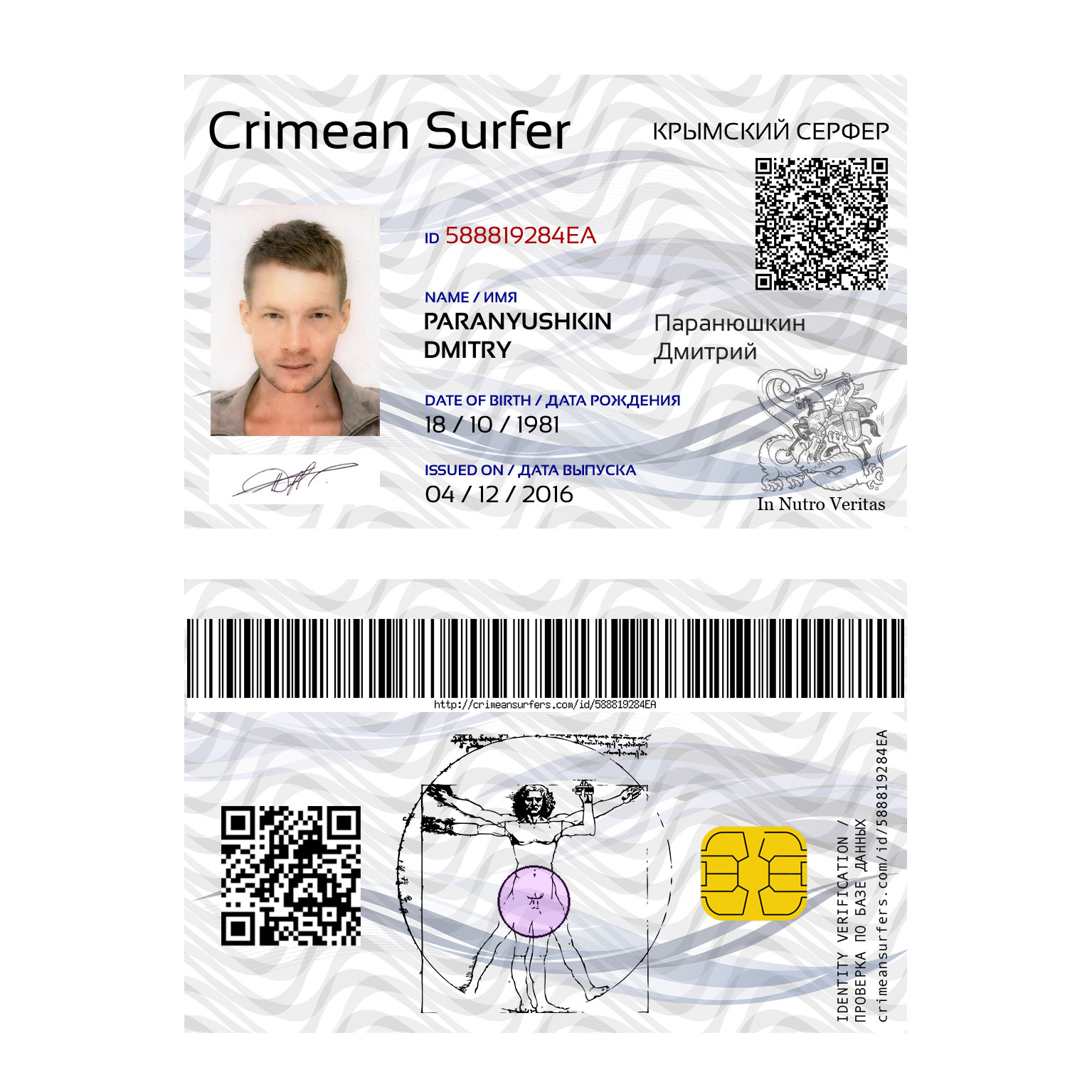Crimean Surfers
Crimea is a sensitive topic, especially since it was annexed by Russia in 2014, but this story started in a different way.
Back in 2016, when I was passing by from Panorama Bar to Berghain, a jovial Italian man with long hair and an even bigger smile Giovanni de Dona looked at my jungle-themed onesie (greetings to EGR) and shouted: “Crimean Surfer”! We didn’t know each other at all, but I felt compelled to explore this thread and said back to Giovanni that this phrase in itself was genius. The reason is that it’s not possible to surf in Crimea, the waves are not big enough. But it is precisely the reaffirmation of this impossibility into fiction that attracted my attention to what Giovanni said.
A long conversation followed, where we exchanged opinions and understood that we were both attracted by the impossible, especially if it’s infected by sensitive history and cultural fragments that have nothing to do with each other. After all, many of us spend years trying to shed off layers of cultural identity (or shall we say, get rid of it), so it is especially attractive to be given a fast track into a kind of person that cannot exist by default, especially in the current geopolitical circumstances.
Crimean Surfer is an experiment in constructed identity. Taking inspiration from prehistoric times we fuse the common essence pertinent to the aborigines of Europe with the contemporary liquid individuality to create a new temporary identity formation.
Our main idea was that a Crimean Surfer does not even try to surf. He or she will simply rest on the waves and enjoy the gentle rocking of the sea as it is enough for Crimean Surfers to be on their surfboard on top of the water. Rocking gently to the surface movement of the sea. They are not looking to catch the waves. They are the waves. Putting aside this constant chase for the wave, Crimean Surfers dissolve in the moment, accepting whatever it is that had always been there, even if it is not there anymore.
Another attitude that sets Crimean Surfers aside is that they try to embrace all perspectives, especially when it comes to politics. After all, people can argue who can claim ownership over a piece of land and we can leave it up to them to unravel centuries of who did what first. Crimean Surfer will instead go to the land and treat it for the Gaia that it really is and not try to impose ownership over it. Whether it belongs to Russia, Ukraine, Crimean Tatars, or Turks does not really matter in this case, because it is, after all, the land. And then there is the sea. And after the first 12 miles, that sea is for everyone and no one at the same time. People are people and if you interact with them as such, you don’t really need government, because you don’t need any enforced protection or a system of law that will oversee your activities.
On the inner level, Crimean Surfing promotes observational meditation and celebration of one’s nutro (a Slavic word that describes the inside both physical and emotional — the gut chakra, in other words). When you feel something with nutro, you feel a different kind of truth, the one that connects you on a different level.
Myself and Giovanni de Dona made a presentation in the frame of 3AM event in 2016, just after our meeting, to present the concept. We also produced a set of texts and artefacts, including an identity card, that could be used as an ID to represent everything that Crimean Surfers stand for.
It was a big pleasure to continue this conversation that started at Berghain into something tangible and practical, because it could have so easily just stayed a conversation only. So I guess for us it was also a way to ensure that ideas that seem fun on the moment don’t only live in the places where they are born but also travel into the wide world and get some tangible materialization.
This project got on hold when we received a warning from PayPal and from our printer that they wouldn’t process our payments / printing orders for the Crimean Surfer IDs due to the current political situation. After all, it was the bankers and the printers who decided to stop the growth of this new identity.
More text is available at http://polysingularity.com/crimean-surfers/
Date
December 15, 2016
Category
Archive, Framework, Medium, Publishing, Social, Type, Urgency



